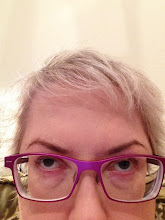For the day that's in it (as we say here in Ireland), I thought I'd look very quickly at Jane Austen's attitude towards Ireland in honour of St. Patrick's Day. Please pardon the extremely short synopsis of Irish history which is to follow!
Ireland, to Jane Austen, was an alien country. In a letter to her niece Anna in 1814, famously advising her on her own novel, she wrote:
"And we think you had better not leave England. Let the Portmans go to Ireland, but as you know nothing of the manners there, you had better not go with them. You will be in danger of giving false representation."
It was advice she had used herself in her own writing. In The Watsons, her incomplete novel begun while living in Bath, we learn that Emma Watson's aunt has married Captain O'Brien and gone to live with him in Ireland. Captain O'Brien's character is not good; he appears to be a fortune hunter, and it is likely that the marriage will be unhappy. Of Ireland, Mr Edwards says "I do not wonder that you should not wish to go with her into that country, Miss Emma." In her later novel Emma, Jane Fairfax returns to Highbury to live with her Aunt Bates rather than accompany the Campbells, with whom she had been living, to Ireland.
Although Jane Austen grew up during a time of great unrest in Ireland, like many of her peers she seems to have known little of events there. Ireland at the time was divided squarely into two categories; the poor Catholic "native" Irish and the (usually) wealthy, land-owning Protestant Irish (Church of Ireland). Even the disastrous Irish rebellion of 1798 went unremarked upon by her letters or novels, even though she alludes to news of her "Irish friend" in letters of that year.
When Jane Austen refers to Ireland or the Irish in her books or letters, she is referring not to the ordinary Catholic Irish, but rather to the Protestant ascendancy; a group of people still thought of by "native" Irish people as English, regardless of how many generations they had lived in the country. However, it seems as though the Irish ascendancy were generally more relaxed in their manners than their English counterparts. A couple of throw-away comments of Jane Austen's show us her opinion of what Irish men's manners were, or should have been.
Even of her one-time beau, Tom Lefroy, she writes:
I am almost afraid to tell you how my Irish friend and I behaved. Imagine to yourself everything most profligate and shocking in the way of dancing and sitting down together... He is a very gentlemanlike, good-looking, pleasant young man, I assure you.
Jane Austen to Cassandra, January 1796
The last seems to be added to contradict some of Cassandra's expectations to the contrary, based on her knowledge - or rumours - of Irish manners.
Perhaps those rumours were not always unfounded. In 1804, while on holiday in Lyme Regis, Jane is both flattered and affronted by a young man at a ball who makes clear his interest in her.
...had I chosen to stay longer I might have danced... with a new, odd-looking Man who had been eyeing me for some time, & at last without any introduction asked me if I meant to dance again. - I think he must be Irish, by his ease, & because I imagine him to belong to the Honble Barnwalls, who are the son & son's wife of an Irish Viscount - bold, queerlooking people, just fit to be Quality at Lyme.
Jane Austen to Cassandra, September 1804
Yet there was a romantic sensibility about Ireland that was in vogue at the time. Although Jane Fairfax did not follow the Campbells to Ireland, we are given an image, through her correspondence with the new Mrs Dixon, of a beautiful verdant country that would be pleasant to visit. Irish linen and lace were popular above other varieties, and Irish airs and melodies were to be found in every drawing room and ballroom.
Jane Austen may have never followed Tom Lefroy to Ireland; but in 2007 "Jane Austen" (Anne Hathaway) did. The atrocious film "Becoming Jane" was shot on location in Wicklow and Dublin, which interestingly were the real-life haunts of the real Tom Lefroy. Ireland was chosen as a location because
"Hampshire now is groomed and manicured and what we were able to find in Ireland was a sense of countryside that felt more unchanged. That was one of the things that I really wanted to get... a sense of the landscape in which Jane Austen grew up. Ireland also has a great variety of Georgian houses and older houses as well. I think it gave us quite a different and interesting look for the film."
(Julian Jarrold, director)
So, would Jane Austen actually have liked Ireland if she had ever visited? I'm inclined to think that she would have loved the countryside, and equally inclined to hope that, like Jonathon Swift, she would have been appalled by the poverty.










Interesting piece,Jane (And Happy St Patricks Day to you!) Dont forget the compliment paid to Captain Wentworth in Bath when spied by Lady Dalrymple:
ReplyDelete"More air than one often sees in Bath. Irish, I dare say."
:-)
I agree that JAne Austen would have seen Ireland (had she visited ) with very clear and open eyes. Its sad that she didn't live long enough to enjoy a certain amount of fame. A visit to Maria Edgeworth might have then occurred..and that would have given us all food for thought(and hopefully records in the shape of letters and journals!)
Thanks Julie (austenonly)!
ReplyDeleteI haven't forgotten Capt Wentworth's compliment from Lady Dalrymple, but thought that was a bit too complex for my very short, bashed-off post. The Dalrymples themselves were of the Irish Ascendancy, and were another caricature of such people; dull, indolent, and interesting only for their title. Lady Dalrymple's compliment was more a desire to draw Capt Wentworth's fine air as a reflection on her own countrymen.
Oh. Actually, maybe not so complicated - should have just said that, then. Sigh.
And yes, I had forgotten her love of Maria Edgeworth. :)
Interesting post as always and I was going to ask about the compliment paid to my personal favourite Austen hero, Captain Wentworth, by Lady Dalrymple but you've dealt with it in your comment above.
ReplyDeleteI am wondering if Jane made any comments on wearing green and whether or not that suited the complexion. Something for another post, maybe? ;)
Happy St Patrick's Day!
I believe Jane Austen would have enjoyed Ireland. Exploring and soaking in the landscape of the countryside. As for noticing the poverty, I am not as convinced she would have noticed.
ReplyDelete"More air than one often sees in Bath. Irish, I dare say."
ReplyDeleteI always read this passage as a tribute to an old love, Mr. Lefroy. Oh! Am I getting sentimental? No way!
PS: I do love Ireland!